Living In Singapore: Pros & Cons You Should Know
Singapore is often described as a city that works, and it totally deserves its reputation. This small island nation in Southeast Asia has built one...
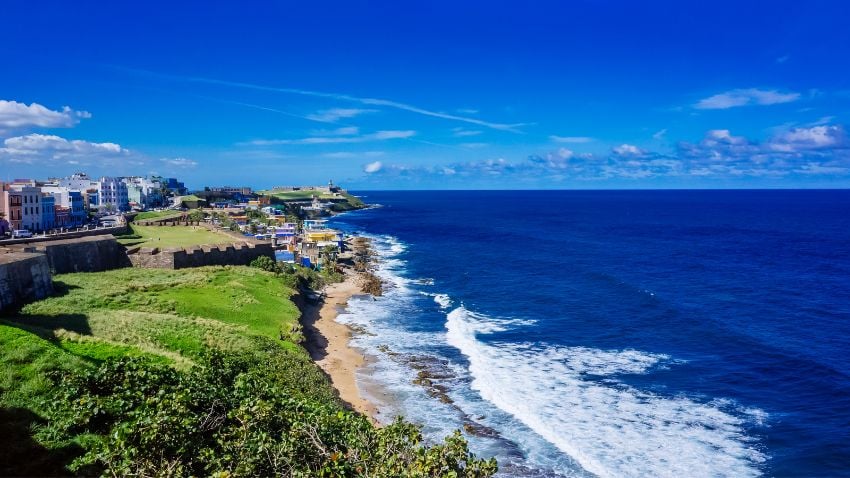
Puerto Rico is a U.S. territory with just over 3 million population located in the Caribbean just east of the British Virgin Islands. Aside from the main island of Puerto Rico itself, the territory also includes some smaller islands that are mostly uninhabited. Puerto Rico is a mountainous area located on the boundary of the Caribbean and North American tectonic plates. As a result, it experiences earthquakes and tsunamis, including a massive earthquake in January 2020 that hit 6.4 on the Richter scale and caused billions of dollars in damage. Hurricanes are also a semi-regular occurrence.
The temperature is pretty hot year-round, with mild variation between the seasons. The average annual temperature is 85°F (29°C) in the coastal regions, although things cool down a fair bit in the mountains. There are also distinct wet and dry seasons, with substantial rainfall between April and November.
Puerto Rico is a region with incredible natural beauty. It boasts the only tropical rainforest in the United States. The El Yunque National Forest is 29,000 acres of biodiversity and is the native home to many animals, such as the white-necked crow, the Elfin woods warbler, and sixteen species of Coqui (a type of frog).
Another interesting natural phenomenon found on the island is the Bahia Bioluminiscente. The water actually glows in the dark when you paddle through it because of massive quantities of a specific microscopic organism that glows blue when agitated.
Fans of spelunking can also enjoy access to the Camuy Caves, which span over ten miles with sixteen entrances and 220 caves in total. Because Puerto Rico is part of the United States, it has the same visa policies as the mainland U.S.
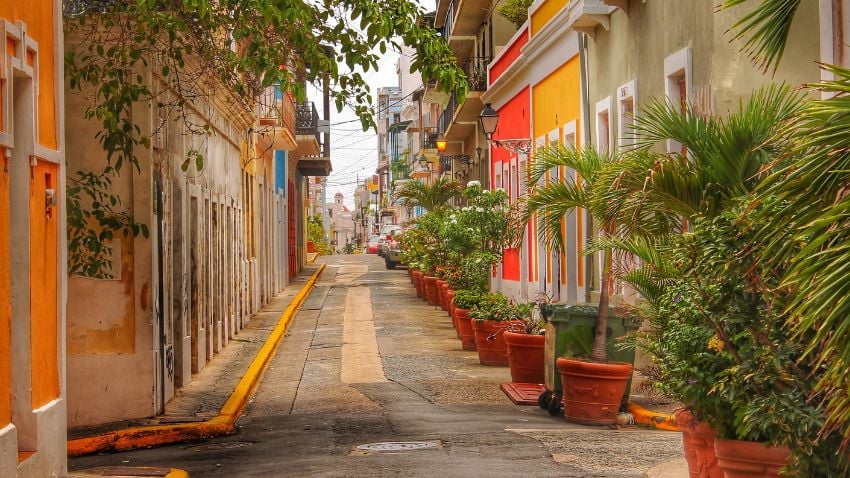
Old San Juan has a great neighbourhood and cozy streets
An American citizen or permanent resident can sponsor a member of their immediate family to join them in the United States. A citizen can sponsor a spouse, child, parent, or sibling, whereas a permanent resident can only sponsor a spouse or unmarried child. The sponsor must be at least 21 years of age or older.
In addition to sponsoring immediate relatives, you can also apply to sponsor more distant relatives, but only a limited number of "family preference" visas are granted each year.
There are several different employment visas one can qualify for. Most of them require an employer to sponsor you. Still, in some instances, applicants can apply on their own, for example, if you are a "person with extraordinary ability" in the arts, education, business, sciences, or athletics. Documentation concerning their elite status is required, but a specific job offer is not. Individuals who apply for an investor visa are not required to have a sponsor. However, they must invest either $1,000,000 USD or $500,000 USD, with the latter amount applying to rural areas or other parts of the country with high unemployment
For U.S. citizens or residents, relocating to Puerto Rico is as easy as hopping on a plane.
Related content: The Basics Of How To Get A Second Passport Or A Second Residency
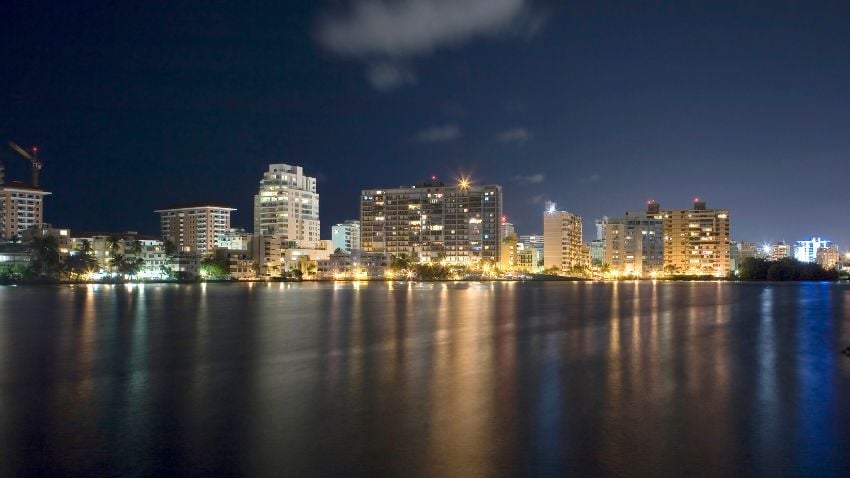
Condado, Puerto Rico
For US citizens, although Puerto Rico is part of the United States, if you become a bona fide resident of Puerto Rico, then to a large degree, you can become exempt from paying federal taxes. For example, if your income comes solely from Puerto Rico, you would not even have to file a federal tax return. On the other hand, if you have income sourced from outside of the island, you may owe federal taxes.
Act 60, the "Individual Investors Act", offers new residents of Puerto Rico tax exemption on income from dividends, interest, capital gains, and crypto that occurs while you are living in Puerto Rico. Once you get to Puerto Rico and move your retirement savings there, you can enjoy the benefits of your portfolio growth without any further tax liabilities. To qualify for this tax exemption, you must receive a tax decree. The exemption period expires on Dec 31st, 2035.
The requirements to qualify under Act 60 include a $10,000 USD annual donation to a charity, the purchase of real estate within a time frame of two years, and filing a yearly report to the Government of Puerto Rico, as well as paying the $5,000 USD filing fee. These acts offered various benefits such as zero income tax or, in some less fortunate cases, a low 4 percent rate.
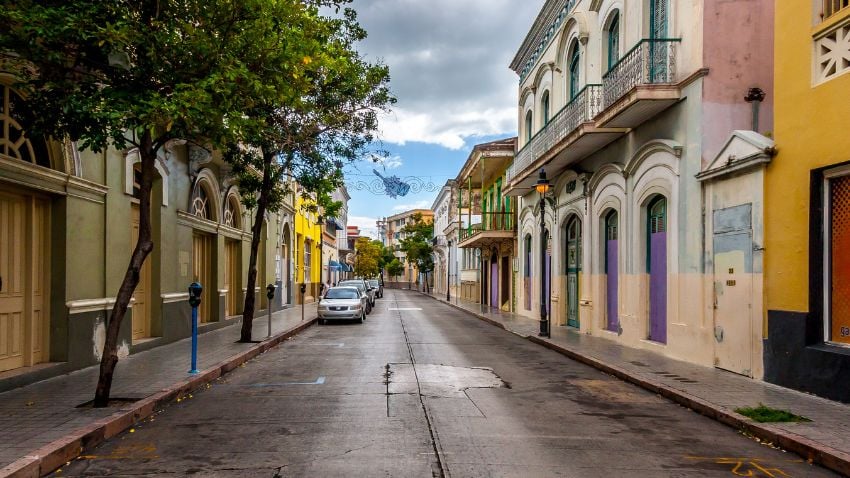
Traditional residencies in Puerto Rico, where you can live with your family
While considering residency, one can't overlook the tourism appeal and the tropical climate that defines Puerto Rico. The island's tourism industry contributes to its dynamic atmosphere, providing residents with a myriad of recreational and cultural experiences against a backdrop of warm, year-round weather.
Puerto Rico's rich cultural heritage and storied history are woven into the fabric of daily life. Becoming a resident means not just residing in a place but becoming part of a community that takes pride in its traditions, music, and culinary delights.
One benefit of residency in Puerto Rico for Americans is that you can retain your American citizenship and passport while still enjoying the tax benefits that act 60 provides. You can avoid paying federal taxes if all of your income is sourced within Puerto Rico, and you don't have to worry about the expatriation tax since you are not leaving the United States. Since you are just moving domestically, you don't have to worry about residency permits or any other paperwork from moving to a foreign country. Puerto Rico uses the American dollar, and English is an official language in the country since it is a US territory, so it is easy to get around, but you can also learn Spanish to help you even further with getting around Spanish.
Another benefit is that you will live in the Caribbean, enjoying great weather all year round. The cost of living in Puerto Rico is costly, but it is reasonable. There are a lot of festivals and parties for you to enjoy the great nightlife in San Juan's many bars and casinos, and the local food is also delicious.
Establishing residency in Puerto Rico is a holistic journey that extends beyond legalities. It's an immersion into a culture, a connection with the land, and an exploration of a vibrant community. With its tax incentives, diverse landscapes, and warm hospitality, Puerto Rico beckons those seeking a unique and enriching place to call home.
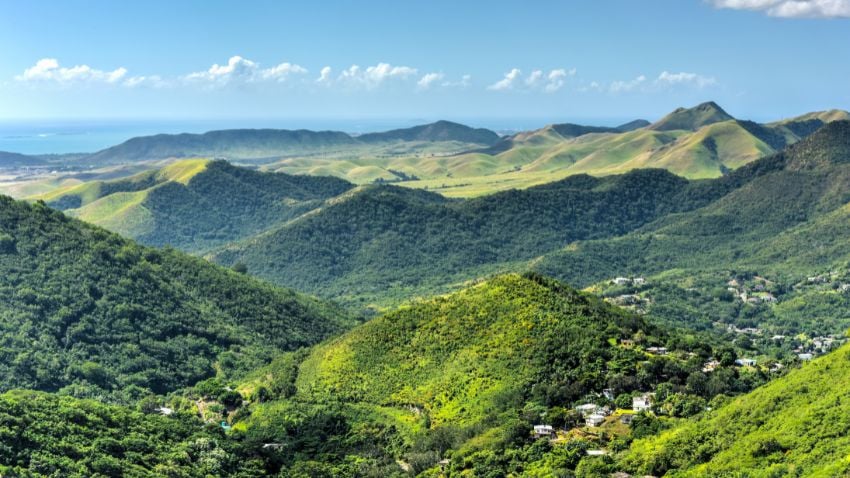
Salinas Landscape, Puerto Rico
Puerto Rico is a Caribbean country with high temperatures most of the year. The country has great natural beauty, and having a Puerto Rico residence also has its advantages. As Puerto Rico is part of the United States, the procedures for obtaining a visa are the same. The country offers the possibility of exemption from a large amount of federal taxes if you are a US citizen or, because of Act 60, if you are an individual investor. Puerto Rico is an excellent choice for you to enjoy the country at a lower cost of living than the United States without worrying about currency or language differences.
If you want the best intel from the expat world, including profitable offshore opportunities, little-known tax-saving strategies, and hard-won insights on immigration, passports, and Plan-B residencies, all delivered to your inbox every single week, then join our daily correspondence, EMS Pulse®. Currently enjoyed by over 84,000 expats and expat-hopefuls worldwide. Fill in the form below to join our newsletter free:

Written by Mikkel Thorup
Mikkel Thorup is the world’s most sought-after expat consultant. He focuses on helping high-net-worth private clients to legally mitigate tax liabilities, obtain a second residency and citizenship, and assemble a portfolio of foreign investments including international real estate, timber plantations, agricultural land and other hard-money tangible assets. Mikkel is the Founder and CEO at Expat Money®, a private consulting firm started in 2017. He hosts the popular weekly podcast, the Expat Money Show, and wrote the definitive #1-Best Selling book Expat Secrets - How To Pay Zero Taxes, Live Overseas And Make Giant Piles Of Money, and his second book: Expats Guide On Moving To Mexico.
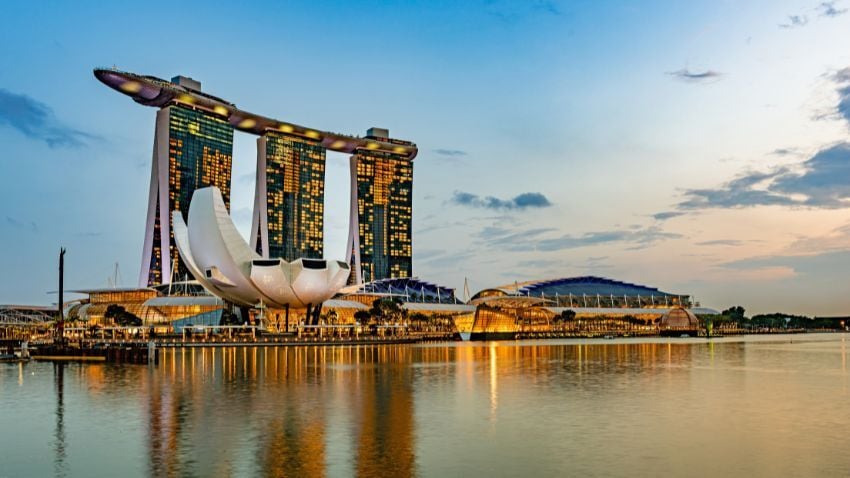
Singapore is often described as a city that works, and it totally deserves its reputation. This small island nation in Southeast Asia has built one...

Panama’s geographic size is modest, but its global relevance is not. The country connects two oceans and two continents, operates on a dollarized...

Honduras’ newly elected president, Nasry Asfura of the conservative National Party, was sworn in on January 27, 2026. The election, held on November...